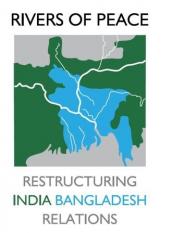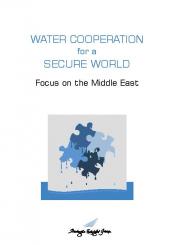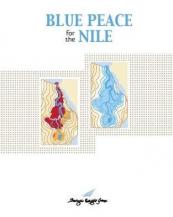publications
-
Water and Violence: Crisis of Survival in the Middle East, 2014
.png&maxw=173&maxh=500)
It is increasingly becoming apparent that there is a growing need to address the real victims of scarcity and conflict over water. These are vulnerable and marginalized communities who do not have carrying capacity to manage water related disasters.
This report examines the problems of populations made vulnerable by the abuse of water as a weapon or as a target in violent conflicts. In the past, some of the state agencies and combatant forces in the region have destroyed water infrastructure. Since 2014, ISIS, a new terrorist group has shown propensity to use water resources to achieve its illegitimate objectives. The international community cannot ignore a developing tragedy and this report also explores possible options for the UN and other international actors.
-
Blue Peace in the Middle East: Progress Report, 2014
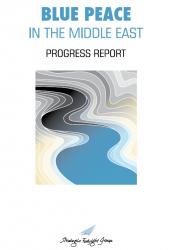
Since water is at the core of life, cooperation on transboundary water resources has the potential to transform relations between countries and establish peace. Strategic Foresight Group's Blue Peace approach holds true to this principle with its belief that water can be transformed from an instrument of conflict to one of cooperation and peace through a series of concrete actions.
In 2011, SFG's report on Blue Peace in the Middle East was published. From 2011 to 2014, numerous developments have taken place that have advanced the ten recommendations made in that report towards becoming a reality. The aim of the Blue Peace in the Middle East: Progress Report is to chart this journey and outline the lessons learnt in the process.
-
The Hydro-Insecure - Crisis of Survival in the Middle East, 2014
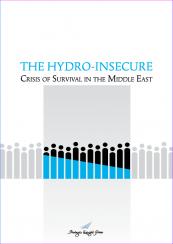
The Government authorities mandated to address water problems, as well as international organisations engaged with the Middle East would benefit tremendously if they have a decision support tool that maps and analyses the plight of the most vulnerable population. This report by Strategic Foresight Group, takes the water cooperation discourse to the level where it is most needed. It identifies 40 million hydro-insecure people from 30 governorates from Iraq, Jordan, Lebanon, Syria and Turkey. About a third of these governorates are in border areas, threatening to spread the problems of hydro-insecure people in one country to other countries across boundaries. The report explains how water vulnerability is closely linked to not only climate and drought conditions, but also to poverty, violence and refugees.
-
This report is SFG's contribution to the India Bangladesh discourse on water relations drawn from our deep experience in water diplomacy around the world and particularly in Asia, the Middle East and Africa. In addition, our experience and base in South Asia has helped us to have incisive understanding of the local realities in the two countries. Thus, this report is a result of our worldwide exposure to hydro diplomacy and insight in regional realities. We particularly benefitted from a roundtable held on 1-2 July 2013 in Mumbai attended by representatives of ruling establishments and opposition parties as well as eminent experts from India and Bangladesh.
INR 625, USD 15 -
Interactive Map - Water Cooperation for a Secure World, 2013

This interactive map shows the water cooperation quotient between countries, as published in Strategic Foresight Group new report Water Cooperation for a Secure World - Focus on the Middle East. The water cooperation quotient is a calculation of the degree of cooperation between countries sharing transboundary water resources - a higher number indicating a greater level of cooperation in trans-boundary water. The map also demarcates countries that face the risk of war. Thus the map shows that countries with a high water cooperation quotient do not go to war for any reason whatsoever. The map clearly indicates that East Africa, Middle East, and Asia fall at the bottom of the quotient scale and face a higher risk of war.
Out of 148 countries sharing water resources, 37 do not engage in active water cooperation. These 37 countries face the risk of war and are home to more people on the earth than others.
To view the interactive map see:
-
Strategic Foresight Group's new report Water Cooperation for a Secure World - Focus on the Middle East details that water cooperation between countries sharing trans-boundary water resources is directly correlated with security of nations involved in such cooperation and peace in the continent or subcontinent they belong to. Conversely, absence of active water cooperation is directly correlated with risk of war between countries sharing trans-boundary water resources.Out of 148 countries sharing water resources, 37 do not engage in active water cooperation. These 37 countries face the risk of war and are home to more people on the earth than others.
This report presents a detailed analysis of ten successful regional water cooperation arrangements, including details of their treaties, structures, processes and operational realities. Drawing on experiences from around the world, the report presents the possibility for the construction of a river basin organisation or other forms of regional water cooperation arrangements.
INR 1200 -
The Blue Peace for the Nile report advocates collaborative, comprehensive and sustainable solutions to transboundary water issues. It promotes engagement of mainstream decision makers and national leaders to address the water issue, going beyond conventional approaches. It also explores how water can be used as an instrument for peace. The countries of the Nile Basin have made commendable progress in regional cooperation under the auspices of the Nile Basin Initiative. The report is a result of a comprehensive international effort, primarily with input from nine of the Nile Basin countries (Burundi, Rwanda, Kenya, Uganda, Tanzania, Sudan, South Sudan, Ethiopia and Egypt). It examines trends and discontinuities for the next 40-50 years, and gives an insight into the future that will help us to prepare policy options.
-
Turkish Review Supplement : Blue Peace in the Middle East
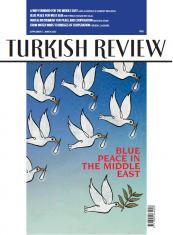
The Turkish Review published a special supplement on Blue Peace in the Middle East, for the media conference held on 18-19 March, 2013.
Available for download
Conferences Reports
-

P5 Experts Roundtable on Nuclear Risk Reduction
Download:Geneva Roundtable Report
-

Roundtable on Global Security and Catastrophic Risks
Download:Report on RT revise
latest articles
-
Saving Humanity from the Scourge of War
22 April 2022 By Sundeep Waslekar
-
Looking Forward, Looking Back
October 13, 2020 By Ilmas Futehally
-
Progress or Precipice???
May 21, 2018 By Sundeep Waslekar




